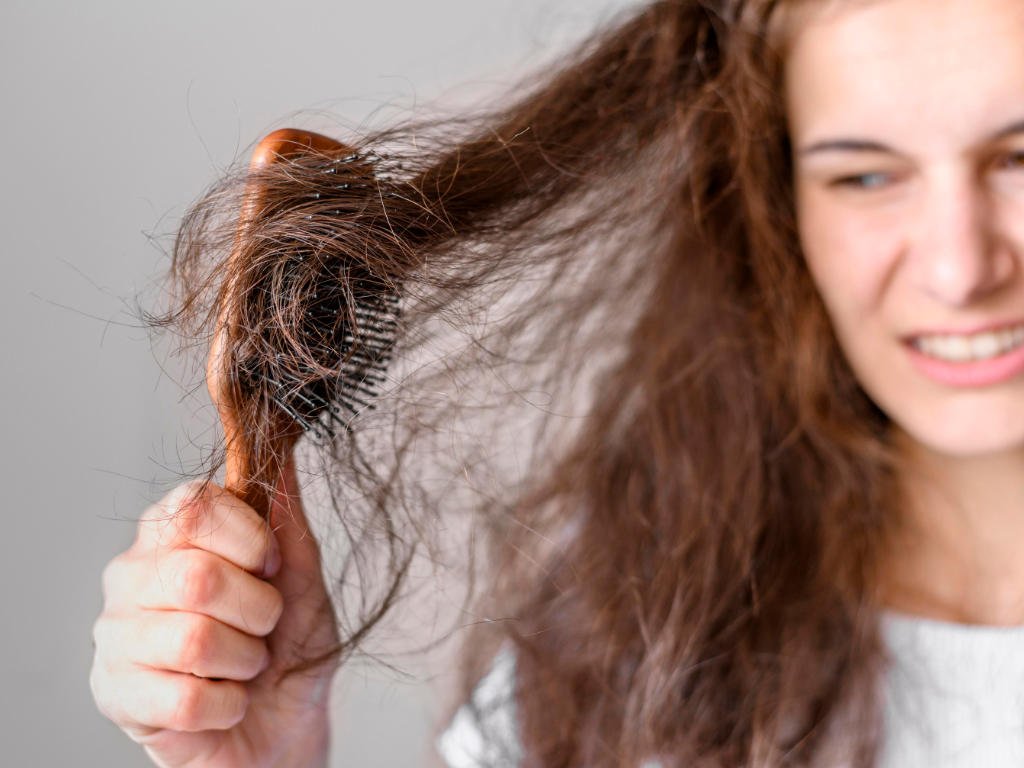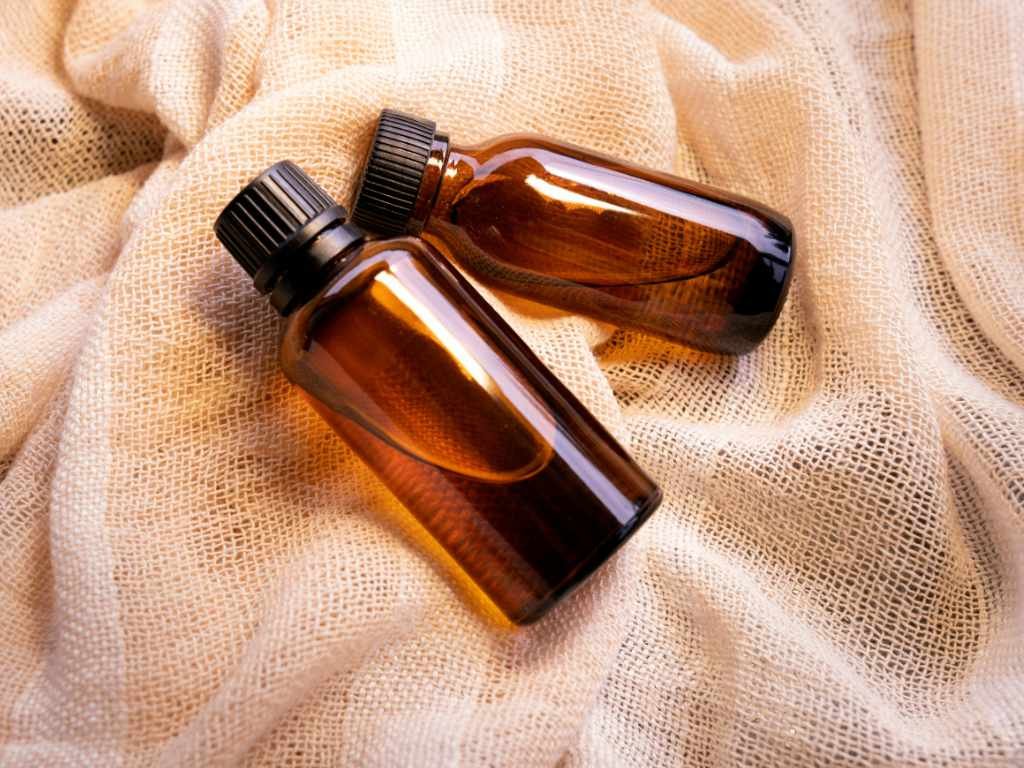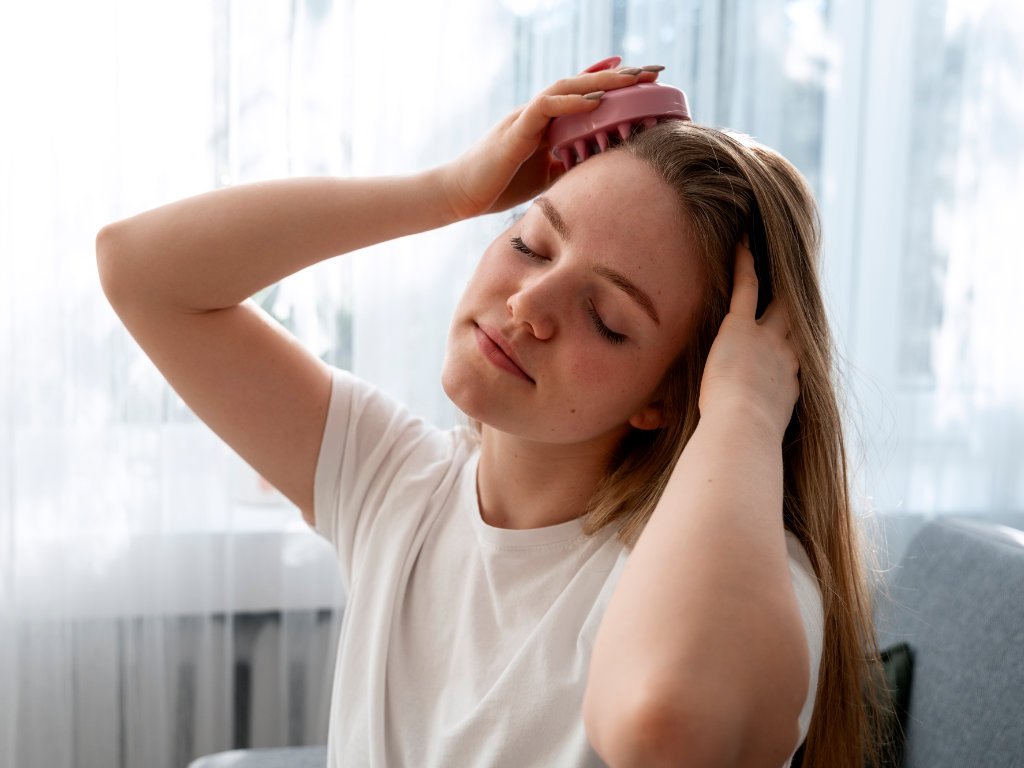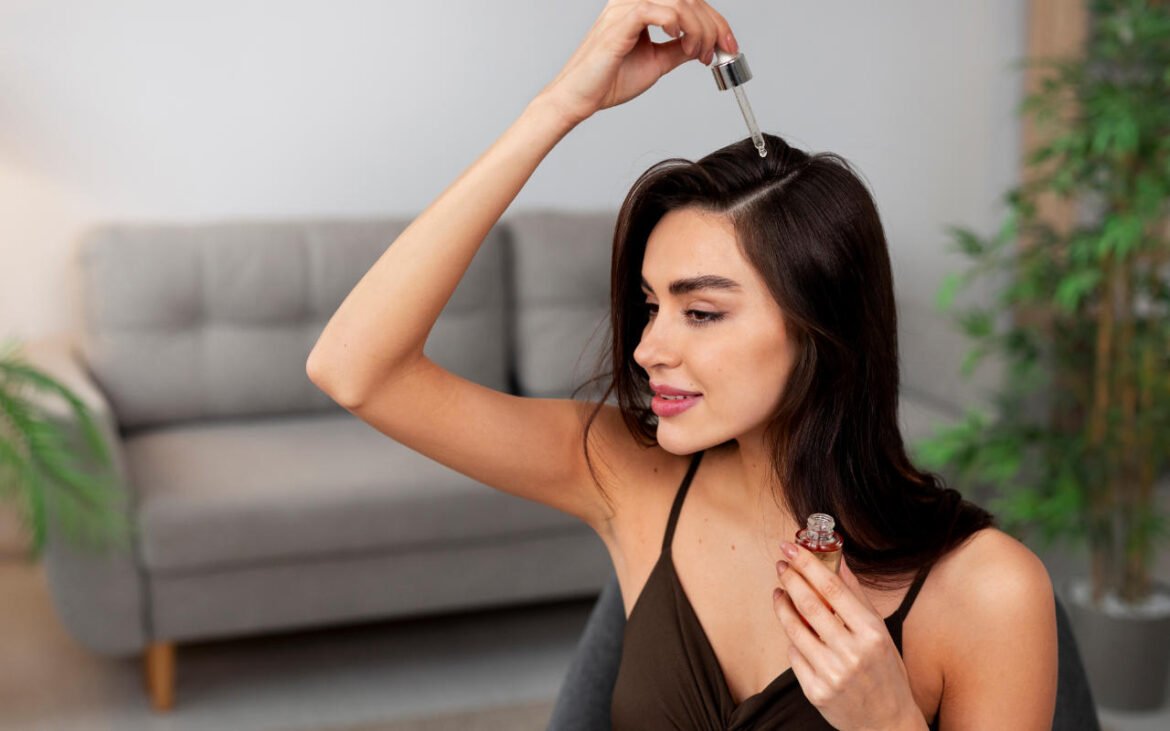Table of Contents
Have you ever run your fingers through your hair and wished it felt softer, looked shinier, or seemed stronger? You’re definitely not alone. Hair oil for women has become a game-changer in the beauty world, and honestly, it’s about time we gave our locks the nourishment they deserve.
Think about it – we put our hair through a lot. From hot styling tools to harsh weather, chemical treatments to daily stress, our strands are constantly battling environmental damage. That’s where hair oils step in as your hair’s best friend, offering targeted care that addresses everything from dryness and damage to slow growth and lackluster appearance.
The beauty of using hair oil lies in its versatility. Whether you’re dealing with brittle ends, an itchy scalp, or hair that just won’t grow past your shoulders, there’s likely an oil formulated specifically for your concerns. But with so many options flooding the market, how do you choose the right one for your unique hair needs?
Why Should You Use Hair Oil?
Let’s be real – hair oils aren’t just another beauty trend that’ll fade away next season. They’re backed by centuries of traditional use and modern science, delivering tangible benefits that you can actually see and feel.
Nourishment and Deep Hydration
Your hair craves moisture, especially if you’re constantly exposed to heating tools, sun damage, or chemical treatments. Oils like coconut and argan work differently than your regular conditioner – they actually penetrate the hair shaft, delivering essential fatty acids and nutrients directly where they’re needed most. Coconut oil, for instance, reduces protein loss in hair, which is crucial for maintaining strength and preventing breakage.
Improved Texture and Enviable Shine
Ever wondered how some people have that effortless, glossy hair that catches light beautifully? Often, it’s not genetics – it’s the right oil. Lightweight oils like argan and sweet almond add softness and gloss without weighing your hair down or making it look greasy. They smooth the hair cuticle, which reflects light better and gives you that coveted shine.
Protection from Daily Damage
Here’s something most people don’t realize: antioxidant-rich oils act like a protective shield for your hair. They help defend against UV rays, pollution, and heat damage from styling tools. Think of it as sunscreen for your strands.

Types of Hair Oils and Their Superpowers
Nourishing Hair Oil: The Foundation of Healthy Hair
When it comes to nourishing hair oil, coconut, argan, and almond oils are the holy trinity. Each brings something unique to the table, and understanding their strengths can help you make the best choice for your hair type.
Coconut oil is like that reliable friend who’s always there for you. It’s rich in lauric acid, which has a low molecular weight that allows it to penetrate deep into the hair shaft. This makes it incredibly effective for strengthening hair from within and reducing protein loss that leads to breakage. Plus, it has antimicrobial properties that can help keep your scalp healthy.
Argan oil, often called “liquid gold,” is packed with vitamin E and essential fatty acids. It’s particularly excellent for improving hair elasticity – meaning your hair can stretch without snapping. This Moroccan treasure is perfect if you’re dealing with dry, damaged, or chemically treated hair.
For those with fine hair, almond oil might be your new best friend. It’s lightweight yet nourishing, providing moisture without the heaviness that can weigh down delicate strands.
Some standout products worth considering include Fable & Mane HoliRoots™ Pre-Wash Treatment Oil and Virtue Healing Oil, both of which have earned rave reviews for their nourishing properties without leaving hair greasy.
Anti-Dandruff Hair Oil: Say Goodbye to Flakes
Dandruff isn’t just embarrassing – it can actually compromise your scalp health and affect hair growth. Anti-dandruff hair oil formulations typically contain ingredients like tea tree oil, rosemary, or bisabolol that address the root causes of flakiness.
Tea tree oil is particularly effective because it has antifungal properties that can help control the yeast (Malassezia) that often contributes to dandruff. Rosemary oil not only helps with flakiness but also improves circulation to the scalp, which can promote healthier hair growth.
The key is finding oils that balance your scalp’s oil production rather than just masking the symptoms. Look for products that soothe dryness while clarifying the scalp of excess buildup.
Hair Fall Oil for Women: Addressing the Root of the Problem
If you’re noticing more hair in your brush or shower drain than usual, hair fall oil for women might be exactly what you need. Hair loss can result from various factors – hormonal changes, stress, nutritional deficiencies, or environmental damage.
Castor oil has gained significant attention for its high concentration of ricinoleic acid, which may help improve circulation to hair follicles. While the research is still developing, many women swear by castor oil treatments for promoting hair regrowth and reducing hair fall.
Rosemary oil is another powerhouse ingredient that’s been clinically studied for its hair growth benefits. Some studies suggest it may be as effective as certain topical treatments for promoting hair growth by improving blood circulation to the scalp.
Bhringraj oil, a traditional Ayurvedic remedy, has been used for centuries to address hair fall and promote new growth. While more research is needed, anecdotal evidence suggests it can be particularly effective when used consistently over time.
Organic Hair Oil for Women: Clean Beauty for Your Crown

Organic hair oil for women has become increasingly popular as more people seek clean, sustainable beauty options. These oils are typically free from synthetic fragrances, preservatives, and pesticides, making them ideal for sensitive scalps or those following a more natural lifestyle.
The benefits go beyond just what’s good for your hair – organic oils support sustainable farming practices and are often packaged in environmentally friendly containers. Look for certifications like USDA Organic or ECOCERT to ensure you’re getting genuinely organic products.
Organic coconut oil and argan oil are excellent starting points if you’re transitioning to cleaner hair care. They’re widely available, well-researched, and suitable for most hair types.
How to Choose the Right Hair Oil for Your Unique Needs
Selecting the perfect hair oil isn’t a one-size-fits-all situation. Your hair type, concerns, and lifestyle all play a role in finding your ideal match.
Consider Your Hair Type First
If you have oily hair, you might think oils are off-limits – but that’s not true! Lighter oils like jojoba or grapeseed can actually help balance your scalp’s oil production without adding excess grease. These oils are particularly beneficial for fine hair as they provide nourishment without weight.
For dry hair, richer oils like coconut, olive, or avocado oil can provide the deep moisture your strands are craving. These oils have larger molecules that sit on the hair shaft, creating a protective barrier that locks in moisture.
If you have combination hair (oily roots, dry ends), argan or sweet almond oil offer balanced care that won’t overwhelm your scalp while still nourishing your lengths.
Assess Your Primary Concerns
Are you dealing with dandruff? Hair fall? Lack of shine? Slow growth? Being clear about your main concern will help narrow down your options significantly.
For growth concerns, look for oils containing rosemary, castor, or caffeine. For damage repair, seek out oils rich in proteins and vitamins like coconut or argan. For dandruff, tea tree or neem oil formulations might be your best bet.
Read Labels Like a Detective
Don’t just look at the front of the bottle – flip it over and examine the ingredient list. The first few ingredients make up the majority of the product, so they should align with your needs. Avoid oils with long lists of synthetic ingredients if you’re seeking natural benefits.
Watch out for potential allergens, especially if you have sensitive skin. And remember – just because something is natural doesn’t mean it’s right for everyone.
Application Tips for Maximum Hair Oil Benefits
Getting the most out of your hair oil isn’t just about choosing the right product – it’s about using it correctly.

Master the Application Technique
Start with clean, slightly damp hair for better absorption. Section your hair and apply the oil from mid-length to ends first, then work your way up to the roots if needed. For scalp treatments, use your fingertips to massage gently in circular motions – this stimulates blood circulation and helps the oil penetrate better.
The massage part is crucial and often overlooked. Spend at least 5-10 minutes massaging your scalp when applying oil. This not only feels amazing but also promotes better circulation and can enhance the oil’s effectiveness.
Timing and Frequency Matter
Most hair oils work best as pre-wash treatments. Apply the oil 30 minutes to several hours before shampooing (some people even do overnight treatments). This gives the oil time to work its magic without leaving residue.
For frequency, start with once a week and adjust based on your hair’s response. Oily hair types might benefit from weekly treatments, while dry, damaged hair might thrive with 2-3 applications per week.
Hot Oil Treatments for Extra Nourishment
Want to supercharge your hair oil treatment? Try warming the oil slightly before application. Warm oil penetrates better and feels incredibly relaxing. Just make sure it’s warm, not hot – you don’t want to damage your hair or burn your scalp.
What to Expect: Realistic Timeline for Results
Let’s set realistic expectations – hair oil isn’t a magic potion that transforms your hair overnight. Most people start noticing improved texture and manageability within 2-3 weeks of consistent use. For growth-related benefits, you’re looking at 2-3 months of regular use before seeing noticeable length differences.
Remember, hair grows about half an inch per month on average, so patience is key when you’re targeting growth concerns. However, you should notice improvements in hair health, shine, and texture much sooner.
Common Mistakes to Avoid
Don’t make these rookie mistakes that can sabotage your hair oil results:
Using Too Much Product
More isn’t always better. Start with a small amount and build up if needed. Over-application can weigh down your hair and make it look greasy.
Applying to Dirty Hair
While hair doesn’t need to be freshly washed, it shouldn’t be laden with styling products either. Product buildup can prevent oil from penetrating effectively.
Inconsistent Use
Hair oils work best with consistent application. Sporadic use won’t give you the cumulative benefits you’re looking for.
Wrong Oil for Your Hair Type
Using heavy oils on fine hair or lightweight oils on severely damaged hair won’t give you optimal results.
Frequently Asked Questions
Can I Use Hair Oil Every Day?
It depends on your hair type and the oil you’re using. Lightweight oils like jojoba can often be used daily on the ends, while heavier oils like coconut might be too much for everyday use.
Should I Apply Hair Oil to Wet or Dry Hair?
Slightly damp hair often absorbs oil better than completely dry hair, but it shouldn’t be soaking wet as this can dilute the oil’s effectiveness.
How Long Should I Leave Hair Oil in My Hair?
For pre-wash treatments, anywhere from 30 minutes to overnight works well. For leave-in applications, use just a tiny amount on the ends.
Will Hair Oil Make My Hair Greasy?
Not if you choose the right oil for your hair type and use the appropriate amount. Fine hair needs lighter oils and smaller quantities, while coarse, dry hair can handle richer formulations.
Can Hair Oil Really Help with Hair Growth?
While hair oils can’t change your genetic growth rate, they can create optimal scalp conditions for growth by improving circulation, reducing breakage, and keeping follicles healthy.
Just like maintaining a balanced diet requires understanding different nutrients (as discussed in our guide to balanced nutrition), caring for your hair properly means understanding how different oils work and choosing the right one for your specific needs.
The journey to healthier, more beautiful hair doesn’t happen overnight, but with the right hair oil for women and consistent application, you’ll start seeing improvements that make the effort worthwhile. Whether you’re targeting growth, nourishment, or shine, there’s an oil formulation out there that can help you achieve your hair goals.
Remember, your hair is unique, and what works for your best friend might not work for you. Don’t be afraid to experiment with different oils and application methods until you find your perfect match. Your hair will thank you for the extra attention, and you’ll love the confidence that comes with having healthy, gorgeous locks.


